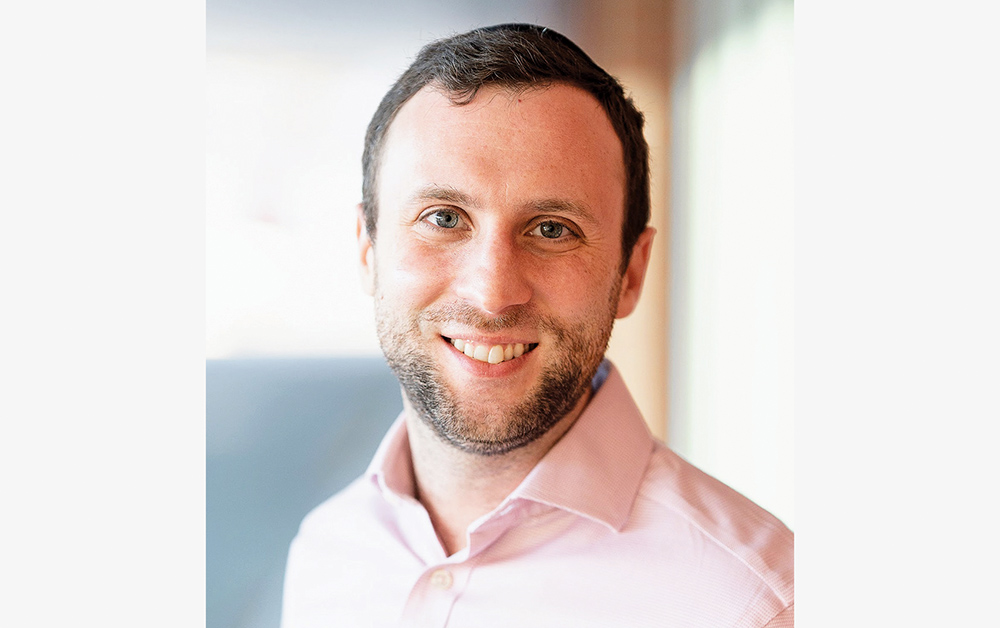By Ellie Wolf

“Young professionals are full of energy and possibility,” said licensed professional counselor Yitz Richmond. “Some of the common setbacks include difficulties with relationships, trying to figure out their first or second job, and dealing with anxiety. However, each one of those struggles contains a certain amount of optimism and excitement.”
Take relationships and work. “It’s exhilarating when I start with a client who can’t get past a second date and then learns the skills of developing a long-term relationship, or a client who says that I saved their marriage.” On the work front, often, Richmond notes, as clients improve their mental health and workplace skills, they get promoted.
Of course, the guidance he provides is not always as life is moving in an “upward direction,” but can still lead to other important positive outcomes. For example, sometimes counseling requires Richmond to assist someone with navigating through the unemployment process, working on resumes, cover letters and interview skills. It can be just as essential and special, he explained, “… to empathize and be present in people’s dark times to help accompany them to the light.
“So much of what goes on in therapy, mental wellness and Judaism, for that matter, relates to relationships,” Richmond noted. “It’s hard to feel excited about Shabbos when one feels lonely. In addition to working on the actual issue itself, it’s important to broaden one’s awareness and life [at the same time]. Major issues in one’s life become somewhat easier to handle when they are ‘part’ of one’s life instead of ‘all’ of one’s life. Sometimes that means learning a language, working on fitness, trying to find friends or volunteering opportunities, or starting to learn Daf Yomi.” Richmond encourages clients to also take time to look back and “assess/acknowledge their progress,” from the place they started to the present.
Another common issue Richmond addresses is when people develop or redefine their own identity, and come to realize that there is some distance between themselves, their parents and their religious observance. “At certain junctures in our lives we reinvent and redefine our standing in these areas. In these cases, my role is not to be a religious guide, but rather a fellow traveler to help someone gain clarity in that journey. At times the answers become clear, and other times it involves making peace with the ambiguity.”

Discussing some of the unique approaches he employs, Richmond said: “Therapy should not feel like ‘therapy.’ I prioritize keeping the environment light as well as empowering. While engaging in classical forms of therapy such as acceptance and commitment therapy (ACT) and cognitive behavioral therapy (CBT), I also embrace experimentation and going outside of the box. Clients with fear of flying experience virtual reality exposure and visits to the airport. Other clients prefer getting outside of the therapy room, and we take walks in the park. Recently I went to a mall with a client to work on social anxiety. Real life is unpredictable and always changing; therapy provides opportunities for engaging with that.”
One of everyone’s central concerns is the rising negative effects of inordinate stress. Richmond explained that Robert Emmons, a leading expert in positive psychology, divided life goals along the WIST scale with four categories: work, intimacy, spirituality and transcendence. Working on three of those categories improved subjective well-being while one of them did not. To no one’s surprise, it was the category of work. “We can’t ignore that work does give a sense of purpose and is necessary for paying the bills for the things that we value, but it is not the be all and end all. In today’s society we put much emphasis on our salary because it is an objective measure of success. But it can rob us of looking at the bigger picture. Part of well-being involves placing emphasis on the other areas and even incorporating intimacy and friendships in our work environment, leading to a better sense of self.”
Richmond shared his tips, themes and insights that might benefit young professionals as well as the general population, describing them as “frequent hits” in his practice:
- The concept of pluralistic ignorance essentially informs us that people are quick to post their successes on social media but don’t post their insecurities and failures. The most effective way to find out what others are thinking is to look at yourself and notice your thoughts. If you’re struggling with imposter syndrome, chances are others are as well.
- Generally speaking, job satisfaction and pay improve when people switch jobs.
- A lot of dating anxiety stems from people trying to actively make everyone like them. You can fake it for a few dates, but successful relationships feel natural and easy. If you’re trying too hard on date No. 3, this likely is not the person you’re going to meet under the chuppah.
- In dating, relationships stall when people are not authentic and open. Start with superficial insecurities and baggage, but as the relationship progresses it’s essential that you start becoming more vulnerable and authentic.
- People won’t admit you’re right if by doing so they’ll feel undermined and judged. Get your point across by giving people openings to save face and feel better about connecting with you.
- You’ll sleep better if your phone isn’t in your room at night.
For information about telehealth or in-person counseling, reach out to Yitz Richmond online via [email protected] or by calling 201-304-7614.
The office is located at 205 Robin Rd. Suite 320, Paramus.
By Ellie Wolf












